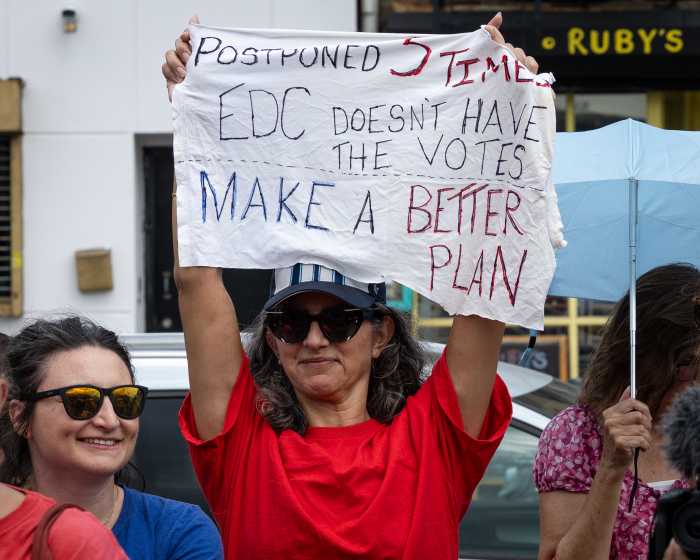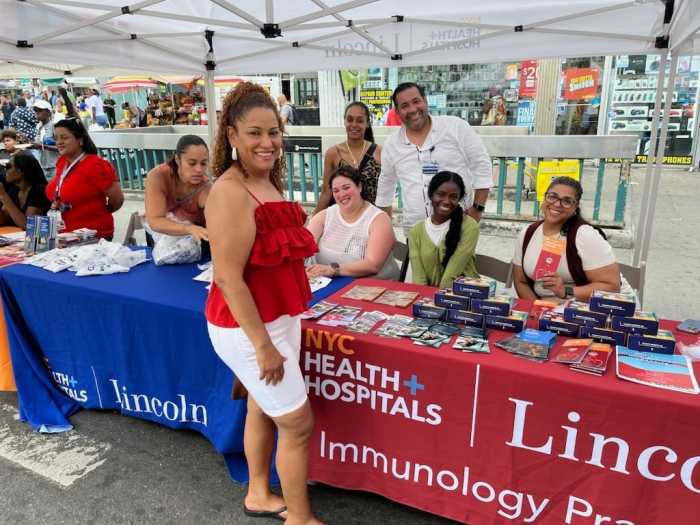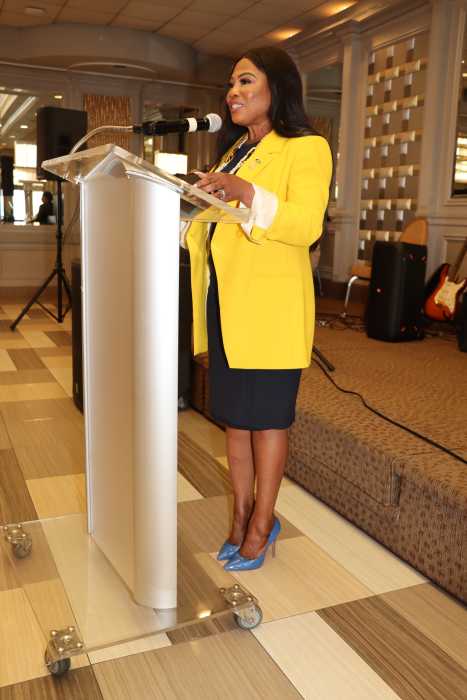In dramatic fashion, Republican Mayor Michael Bloomberg last Friday convened a two-hour working breakfast at Gracie Mansion that brought together LGBT leaders—from City Council Speaker Christine Quinn to grassroots activist Ron Zacchi, co-executive director of Marriage Equality New York—to share ideas and strategies for moving the gay marriage issue forward, both in the court of public opinion and, if the courts of law fail us this summer, in the state Legislature.
It is unfortunate that the mayor chose to snub the leader of the Empire State Pride Agenda, which has for a decade and a half been the community’s voice at City Hall and in Albany. Surely some LGBT New Yorkers may quibble with choices and decisions Alan Van Capelle, the group’s executive director, has made, and no doubt Bloomberg was displeased by the group’s decision to endorse his opponent, Democrat Fernando Ferrer, in last year’s election. But it is hard to fathom how a political figure who so consistently exhibits the steady calm Bloomberg evinces can have such a thin skin. Indeed, suggestions whispered around town that the matter is deeper than the question of the endorsement certainly have a surface plausibility.
Whatever the reason, going forward LGBT New Yorkers—Quinn first among them—must make clear to Bloomberg that, welcome as his support is on this issue, he cannot dictate the composition of the team the LGBT community fields in the critical battle for marriage.
That said, here are some general prescriptions for moving forward.
The Pride Agenda
Having been sidelined from last week’s breakfast, Van Capelle must visibly retake the initiative, and an important part of that may well lie in doing what he probably should have done during the three months since the mayor first signaled his intention to host such a meeting. The Pride Agenda must open up the dialogue on marriage within the community in a very public way.
Bloomberg first said on December 12 that he planned to call together community leaders—the original estimate of a date was in January. Despite the two-month delay in making that pledge a reality, there was no visible move afoot in the community to chart a strategy for such a meeting. The dozen or so people who attended for the most part received phone calls Wednesday or Thursday inviting them, but providing very few details.
It is of course difficult to compose with too much precision a game plan for a meeting that somebody else is calling. Still,
Quinn’s office was given the opportunity to make recommendations on who would attend, and it surely would have been helpful if she and those who presented themselves at Gracie Mansion for breakfast had the benefit of a commonly agreed upon protocol for approaching the mayor.
Opportunities missed hopefully are lessons learned. Friday’s meeting was said to be the first of many. The community needs to develop a comprehensive approach—developed through a transparent, public process—for taking the next steps.
The Mayor
Bloomberg deserves credit for staying true to his word, articulated last February when he voiced support for gay marriage, even as he appealed a favorable ruling from a Manhattan court, and in December when he pledged to caucus with the community.
Stu Loeser, his press spokesman, in comments Friday afternoon to Gay City News, emphasized that the mayor has demonstrated particular adeptness at working behind the scenes. Having come from a corporate background, it is not surprising that this is a key Bloomberg strength—and to the extent he leverages it on our behalf, it is to the better.
But Bloomberg must never forget the extraordinary bully pulpit he occupies as Republican mayor of the nation’s largest city. State Senate votes need to be moved, to be sure. But before we get there, hearts have to be won. Most of that work needs to be done by us—through our willingness to tell our stories, all of our stories, at every possible opportunity.
Yet a critical part of the reason that the gay rights movement advanced so slowly, even haltingly, for so many years was the reluctance of so many powerful people in America to stand with us.
The visible, repeated, unasked support of the mayor for marriage equality can have a transformative effect on the public dialogue in this state, and can force his political party to face an issue that they have to date dodged mostly because they could.
We need to demand again and again and again that Bloomberg be vocal .
The Speaker
Every single attendee at last week’s meeting who spoke to Gay City News emphasized that the major cause for hope coming out of Friday was the cooperative spirit evidenced between Michael Bloomberg and Christine Quinn. The speaker has been entrusted with an enormous public charge on behalf of the LGBT community. She has many issues to negotiate with the mayor over the next four years, many differences to split, many horses to trade, and probably a good number of principled deadlocks to navigate.
For us, steering the strategy on marriage has become her most important task. Quinn needs to be tireless, even relentless in moving the process forward. She needs to be Bloomberg’s constant political conscience on this matter.
And, Quinn needs to tender her guarantee that at every step of this process the interests of the gay and lesbian community—and the agenda that we collectively determine is our path—remain paramount.
Clearly, there’s plenty of hard work to go around.
gaycitynews.com



































